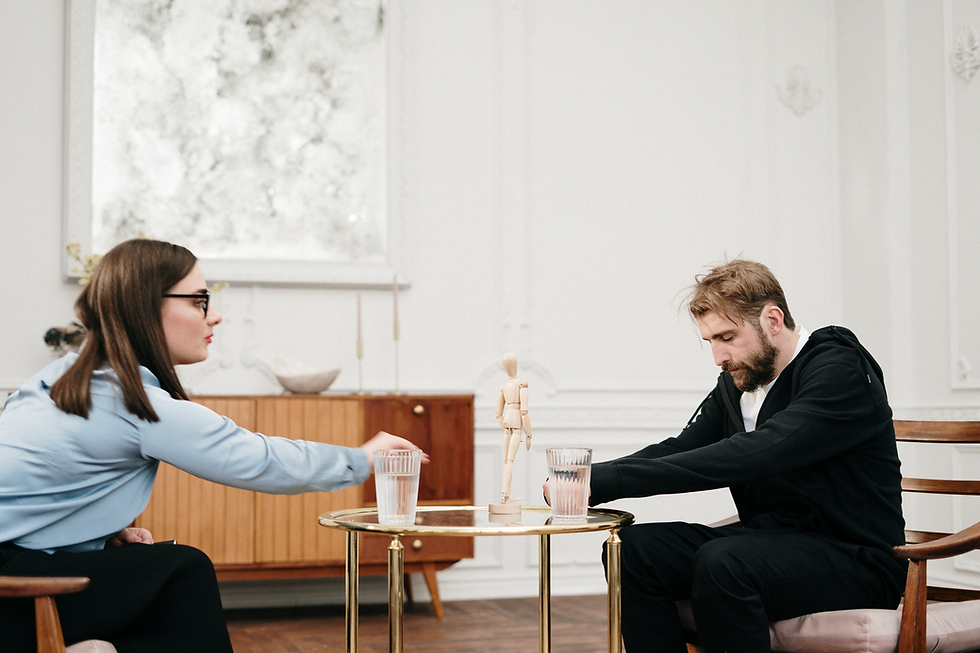How Fashion is Destroying Our Youths Mental Health
- Sophie Kelly

- Oct 27, 2021
- 4 min read

Mental health is a real and pressing problem, that is continuing to affect millions of young people worldwide. But can the fashion industry contribute to the degrading mental health of our youths today? Almost certainly.
With the progression of technology, young girls are becoming exposed to the fashion industries image of the ideal body at a drastically younger age. Yet, consequently there has came more feelings of inadequacy, low self esteem and serious mental health issues in youths today. So, is it simply a coincidence or an inevitable effect of the fashion industry and their unattainable portrayal of the ‘normal’ female body?
Photoshopped fashion standards
We may not assume that the fashion advertisements we see on the TV, social media and high streets would have damaging effects upon our mental health. Yet, it is exactly these beauty myths depicted in the media that are having real and adverse effects upon the physical and mental health of young girls.
The models used by many fashion brands fit these discourses of what it means to be beautiful, they're often tall, slim and symmetrical. Yet, these discourses are merely a beauty system that presents perfect bodies as normal ones, thus making girls feel inadequate as they can never achieve this image of perfection entrenched within the media. Yet, many of the models we deem flawless cannot even fit these ideals of perfection themselves.
This 'perfect' body is often only achieved through photoshop. In which models skin can be smoothed to cover pores and imperfections, skin tone can be evened, even their whole body may be changed, making them look thinner in certain parts and bigger in others, the possibilities of photoshop is truly endless.
Many popular fashion brands have had obvious photoshop fails over the years from Ralph Lauren, Gucci and Victoria secret. Even the celebs we see sporting our favourite fashion brands on social media such as the Kardashians, Beyoncé and Mariah Carey have all been caught photoshopping their snaps. So no wonder we cannot achieve these beauty standards entrenched within media and fashion, they're not even real!
What effects is this having on our youths?
Fashion brands are continuing to sell body dissatisfaction to very young and easily influenced girls. Giving them a very unrealistic and unachievable representation of a woman and what their body should be.
These body ideals portrayed to our young girls are getting thinner and thinner by the year. Yet, the common discourse portrayed by media and the fashion industry is that thinness equates beauty. So, it's unsurprising young girls are heavily effected by a range of mental health disorders due to this 'thin ideal'. With so many suffering from self esteem issues, eating disorders and depression as they realise their body doesn't mirror that of a super model.
In the UK alone it's predicted that between 1.25 and 3.4 million people are effected by an eating disorder. With the average age for anorexia being just 16-17 and bulimia being 18-19 years old. The prime age of which people are becoming fashion consumers and those who are exposed to social media the most. Just a coincidence? I think not. And although the fashion industry itself cannot be responsible for the many eating disorders, it's most certainly not helping.
Models themselves suffer greatly from mental health issues such as eating disorders to fit these ideals in the fashion industry. There are estimates that about 20% to 40% of fashion models are currently experiencing an eating disorder. With most fashion models thought to be thinner than 98 percent of American women, yet these are the types of physiques that are normalised within the fashion industry and bombard to our youth on social media, TV and advertisements. No wonder so many young girls are suffering from these mental disorders when its so normalised within the industry itself.
A more inclusive fashion industry
Despite its negatives, we are starting to see a real positive change within the fashion industry. Fashion brands are now much more inclusive in their advertisement, with many aiming to represent all body types regardless of their differences. Here are some brands that radiate inclusivity of all bodies in the fashion industry:
ASOS- Celebrating diversity in body types, ASOS offers a range of plus size, curvy, maternity, tall and petite ranges, sure to fit any physique. Whilst also using a wide range of models of all differing shapes, sizes and appearance's to represent their brand.
Nike- A sporting brand that champions inclusion in sport. Encouraging intersectionality by including various ethnicity's, queer people, and non-binary individuals in their advertisements. And more recently plus size mannequins have been spotted in London stores earlier this year. Destigmatising the discourse that only petite women can be athletic.
ModCloth- This brand was the very first retailer to set the trend of anti-photoshopping pledges. Declaring they will not change the size, shape, proportion, or coloration of the models depicted in their photos. Similarly, to represent real bodies the fashion brand looked to their own employees to sport their new swimsuit campaign. In hopes that it will empower more women to feel confident about their appearance.
Missguided- Launching their campaign #InYourOwnSkin celebrating what the industry perceives as 'flaws' or imperfections. Including those with birth marks, freckles, skin conditions, burns, scars and albinism, creating a real powerful message about self love.
Universals Standard- For this brand, they attempted to remove size from the conversation. Expanding since its launch in 2015, the brand offers sizes 00 to 40 and their models are a real representation of this extensive collection. They also use women with disabilities in their photoshoots, to ensure every body type out there is celebrated and represented.



Comments